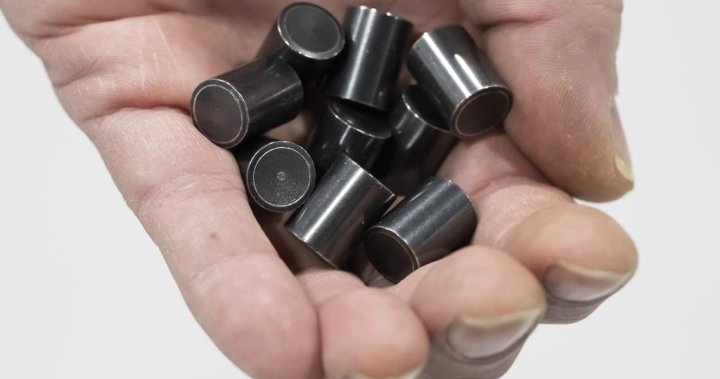The Municipality of South Bruce in Ontario held a referendum and 51 percent of residents voted in favor of becoming a site for a deep geological repository for Canada’s nuclear waste. The Nuclear Waste Management Organization is planning to select a site this year for the $26-billion project, which will involve placing millions of bundles of used nuclear fuel in underground rooms connected by tunnels. The decision has been narrowed down to two sites, Ignace and South Bruce, with both the local municipality and the First Nation in those areas needing to agree to be hosts.
Ignace, located between Thunder Bay and Kenora, was the first community to vote in favor of hosting the nuclear waste repository at a special meeting in July. Now, attention is turning towards Wabigoon Lake Ojibway Nation and Saugeen Ojibway Nation in northern Ontario to see if they are willing to host the repository as well. The process for selecting a site for the repository involves significant input and agreement from the local communities and First Nations involved.
The decision made by South Bruce to potentially host the nuclear waste repository has stirred discussions and debates among residents and stakeholders. Some see it as an opportunity for economic benefits and job creation, while others are concerned about the long-term risks and environmental impact of storing nuclear waste in their community. There are differing opinions on the potential benefits and drawbacks of hosting the repository, and these voices will likely continue to be heard as the decision-making process moves forward.
The Nuclear Waste Management Organization is tasked with finding a suitable site for the repository, taking into consideration various factors such as geological stability, environmental impact, and community acceptance. The organization is working closely with the local municipalities and First Nations to ensure that the decision-making process is transparent and inclusive. The selection of a site for the repository is a complex and multi-faceted decision that requires input and agreement from all stakeholders involved.
As the decision-making process for the nuclear waste repository continues, communities across Ontario are grappling with the implications and considerations of hosting such a facility. The potential economic benefits, environmental risks, and long-term consequences of storing nuclear waste underground are all factors that must be carefully weighed and considered. The decision to host a nuclear waste repository has far-reaching implications for the communities involved, and it is crucial that all voices are heard and respected throughout the decision-making process.
Overall, the decision by South Bruce to potentially host a nuclear waste repository highlights the complex and challenging nature of managing nuclear waste in Canada. The organization responsible for the project is working with local communities and First Nations to ensure that the decision is made in a transparent and inclusive manner. The process of selecting a site for the repository involves careful consideration of various factors, and it is essential that all stakeholders are involved in the decision-making process to ensure that the best interests of the community and the environment are taken into account.


